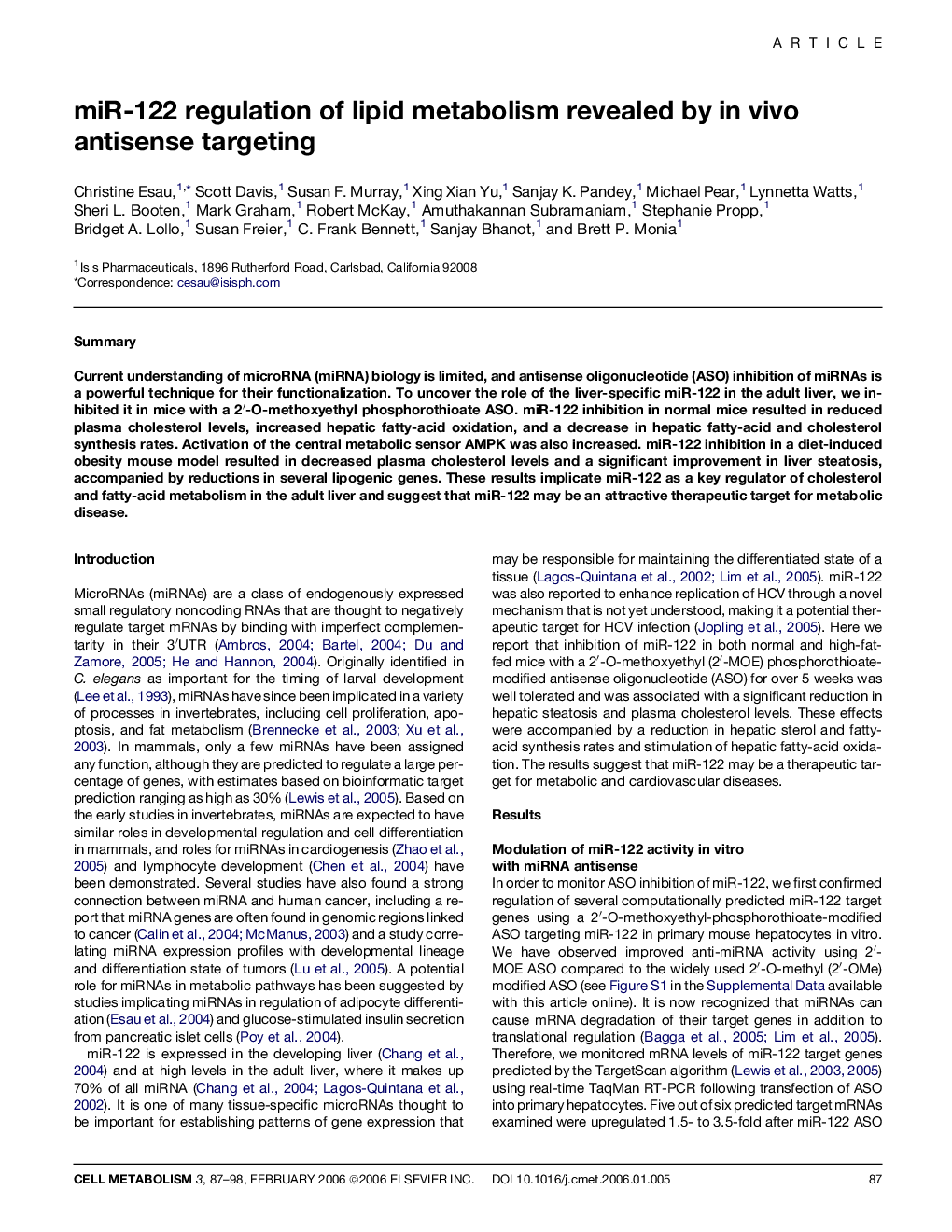| Article ID | Journal | Published Year | Pages | File Type |
|---|---|---|---|---|
| 2793563 | Cell Metabolism | 2006 | 12 Pages |
SummaryCurrent understanding of microRNA (miRNA) biology is limited, and antisense oligonucleotide (ASO) inhibition of miRNAs is a powerful technique for their functionalization. To uncover the role of the liver-specific miR-122 in the adult liver, we inhibited it in mice with a 2′-O-methoxyethyl phosphorothioate ASO. miR-122 inhibition in normal mice resulted in reduced plasma cholesterol levels, increased hepatic fatty-acid oxidation, and a decrease in hepatic fatty-acid and cholesterol synthesis rates. Activation of the central metabolic sensor AMPK was also increased. miR-122 inhibition in a diet-induced obesity mouse model resulted in decreased plasma cholesterol levels and a significant improvement in liver steatosis, accompanied by reductions in several lipogenic genes. These results implicate miR-122 as a key regulator of cholesterol and fatty-acid metabolism in the adult liver and suggest that miR-122 may be an attractive therapeutic target for metabolic disease.
